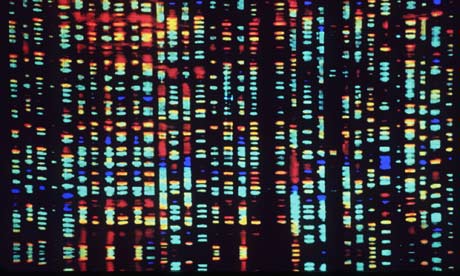Jun 03 2016
Human Genome Project Write
 In 1990 the Human Genome Project (HGP) was launched, with a goal of sequences all the euchromatic DNA in the human genome within 15 years. The project was completed in 2003, two years ahead of schedule, at a cost of $3 billion. This was one of the great scientific achievements of our species – we set out to complete a huge goal, and we did, similar to going to the moon.
In 1990 the Human Genome Project (HGP) was launched, with a goal of sequences all the euchromatic DNA in the human genome within 15 years. The project was completed in 2003, two years ahead of schedule, at a cost of $3 billion. This was one of the great scientific achievements of our species – we set out to complete a huge goal, and we did, similar to going to the moon.
Over the course of the HGP the technology to sequence genes improved by orders of magnitude, becoming faster and cheaper. Not only did we gain a fantastic resource of knowledge that would fuel further science for decades, but the technological advances allowed us to sequence the genomes of many other organisms with still more scientific benefits.
Yesterday scientists announced HGP-Write, a plan to synthesize from scratch an entire human genome. Clearly they hope to replicate the success of the HGP. The plan is to organize an international effort to synthesize a human genome, advancing the technology to do so along the way. The proposed budget is $3 billion, the same as for the HGP.
Reaction to the announcement has been mixed. In favor of the proposal is the notion that such an effort will have many downstream benefits, like the HGP. The main idea is to bring down the cost of synthesizing DNA, increase the speed and efficiency, and make the technology widely available. As with the HGP, once a human genome is complete, the technology can be applied to many other organisms.
So far scientists have only created synthetic bacteria and yeast chromosomes. HGP-write would be leaping to a much larger genome.
Critics, however, charge that this work is already being done in many labs, and so one large centralized project is redundant. Others argue that the ethics need to be discussed first, and therefore the project is premature. Still others fear that private companies will have too much control of the project, and therefore call to have everything be open to the public.
Proponents, however, reply that funding a large project will advance the field tremendously, and benefit all the labs currently working in DNA synthesis by giving them new tools.
With regard to the ethical considerations, proponents state that the synthetic cells will be unable to reproduce. They will remains cells, and cannot create a synthetic person.
While it is good to vet such a huge proposal as much as possible, after reading much of the back and forth I am more sympathetic to the proponents of this project. We should discuss the ethics, but as long as the result of the project is just cells, I don’t see any legitimate concern. The fact that this might move us in the direction of creating a synthetic human is irrelevant – all genetic research does that to some degree. It’s a slippery slope fallacy.
It is interesting to consider the ethics of creating synthetic humans. Some have declared this flat out unethical, but I disagree. The devil is in the details. Done carefully and thoughtfully there can be many benefits to synthesizing humans resistant to certain diseases, for example. Perhaps we will need to engineer humans to thrive in space.
The most important question for the project, in my opinion, is the cost effectiveness. Is this a good use of $3 billion of research funding. Large centralized projects generally work out well, as the HGP itself attests. There is a clear potential here to advance a technology with many potential applications.
Engineering bacteria for drug production, toxic waste cleanup, and fuel production are obvious applications, for example.
I say bring it on, but will certainly follow the debate among experts in the field. The real job of proponents is to convince the experts and address all their concerns.






